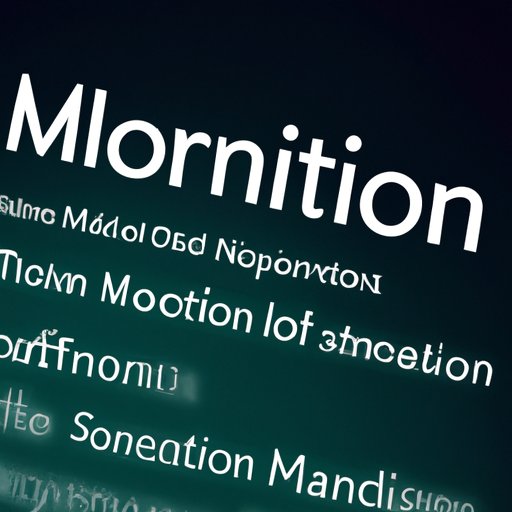
Does Melatonin Make You Groggy?
If you struggle with falling asleep at night, you’re not alone. Approximately 30% of adults report insufficient sleep time and quality. In an effort to improve their sleep, many people turn to melatonin, a popular sleep aid. However, the use of melatonin is not without its challenges, one of which is morning grogginess. In this article, we’ll explore the pros and cons of melatonin, investigate the truth behind the connection between melatonin and grogginess, and suggest ways to mitigate this troublesome side effect.
The Pros and Cons of Melatonin: Does it Really Make You Groggy?
Melatonin is a hormone produced by the pineal gland that helps regulate the body’s natural sleep-wake cycle. It works by signaling to the brain that it’s time to sleep. Melatonin can be beneficial as a sleep aid because it’s a natural hormone produced by the body, it’s easy to use (most commonly taken in pill form), and helps regulate the sleep-wake cycle. However, there are also potential drawbacks to melatonin use, one of which is morning grogginess. Other possible side effects of melatonin use include headaches, nausea, dizziness, and next-day drowsiness.
The Truth About Melatonin: Could it be Making You Feel Tired and Sluggish?
Research studies have suggested a link between melatonin use and morning grogginess. A study published in the Journal of Clinical Endocrinology and Metabolism found that participants who took melatonin slept longer but reported more grogginess and confusion upon waking than those who didn’t. However, not all studies have found a connection between melatonin use and morning grogginess, and the relationship between the two isn’t entirely clear.
One possible reason why melatonin can cause grogginess is timing. If taken too late at night or early in the morning, melatonin can interfere with the body’s production of other hormones that regulate alertness, making it difficult to feel refreshed upon waking. Additionally, individual variability can play a role – some people may be more sensitive to melatonin than others, and factors such as age, weight, and overall health can influence how melatonin affects the body.
Melatonin and Your Sleep: Understanding Why You May Feel Groggy in the Morning
When taken at the right time and in the right dosage, melatonin can help regulate sleep-wake cycles and stabilize sleep patterns. However, it’s important to understand that melatonin can impact sleep stages and cycles. Specifically, it can increase the amount of REM (rapid eye movement) sleep, which is the stage of sleep where dreaming occurs. This can be beneficial, but it can also make it more difficult to wake up feeling alert and refreshed, especially if taken in excessive amounts. Additionally, other factors, such as sleep disorders or poor sleep hygiene, can contribute to morning grogginess even if melatonin use is not a factor.
Myth or Reality: Does Melatonin Really Make You Feel Drowsy?
While melatonin use can contribute to morning grogginess, it’s not always the culprit. Some common myths and misunderstandings about melatonin and grogginess include: thinking that taking more melatonin will help you fall asleep faster (this can actually cause next-day drowsiness), assuming that all melatonin products are created equal (they can vary in dosage and formulation), and believing that melatonin is a “miracle cure” for insomnia (it’s important to address underlying causes of sleep disturbances and not simply rely on medication). It’s important to understand that individual variability can play a significant role in how melatonin affects the body.
The Impact of Melatonin on Your Sleep Quality and Morning Grogginess
There are several ways to optimize melatonin use as a sleep aid and reduce the likelihood of morning grogginess. First, timing is key – take melatonin at least 30 minutes before bedtime to allow it time to take effect. Second, dosage is important – start with a low dose and gradually increase if needed. Third, practice good sleep hygiene habits such as maintaining a consistent sleep schedule, avoiding caffeine and alcohol close to bedtime, and creating a relaxing sleep environment. Finally, consult a healthcare professional if you have questions or concerns about your sleep or melatonin use.
Conclusion
While melatonin can be a helpful sleep aid, it’s important to understand its potential drawbacks, including morning grogginess. It’s unclear exactly why melatonin can cause grogginess in some people, but timing, dosage, and individual variability may play a role. Practicing good sleep hygiene habits and working with a healthcare professional can help optimize the benefits of melatonin use while minimizing side effects. Don’t be afraid to try a few different approaches until you find what works best for you.




